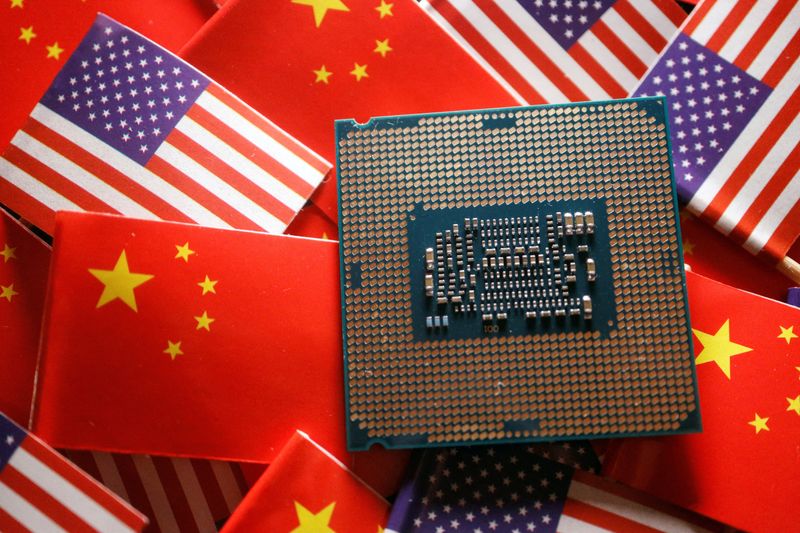
Investing.com — In a note to clients published Tuesday, Danske Bank analysts discussed how the upcoming US presidential election could impact the relations between the US and China going forward.
The report indicates that, regardless of the outcome, the rivalry between the two nations is set to intensify, with Taiwan and the ongoing technology war at the forefront of the tension.
A Harris victory would mean a continuation of Biden’s “managed competition” strategy, analysts note. This approach, which has defined Biden’s tenure, balances increasing technological competitiveness and military alliances with avoiding outright provocation of China, particularly regarding Taiwan.
While maintaining support for the island, the Democrats have refrained from crossing China’s “red line” of backing Taiwanese independence.
In contrast, a Trump victory could upend the current US-China dynamic, according to Danske Bank.
“In case of a Trump win, we are likely to face a new US-China trade war,” the note writes. “This would hurt Chinese growth, create uncertainty for the global economy and be an inflationary impulse for the US.”
This outcome would also likely add pressure on the US dollar and weaken the Chinese Yuan.
Trump has been vocal about his admiration for tariffs, even declaring that “tariffs are the greatest thing ever invented.”
The former US President’s return could see him sharply increase tariffs on Chinese goods, potentially reigniting the trade war that characterized his first term.
“We believe he is likely to start a new trade war with China by increasing tariffs on Chinese goods in a meaningful way,” the report warns. Overall, this would likely provide an inflationary impulse to the US while damaging Chinese growth, alongside global economic uncertainty.
Technology exports would also become a key battleground under Trump, particularly in microchips, an area where China has made strides.
Danske analysts suggest that this could lead to retaliatory measures from China, such as expanding export controls on rare earth minerals, creating a “tit-for-tat spiral” that could affect both economies.
Notably, Taiwan remains a significant flashpoint in US-China relations. Under Trump, the future of US policy toward the island is uncertain.
While he previously increased relations with Taiwan during his first term, his recent statements indicate a more transactional approach.
Trump has suggested that Taiwan “took all of our chip business” and might use Taiwan as a bargaining chip in future trade negotiations with China. Such unpredictability in Trump’s foreign policy, especially concerning Taiwan, could further escalate tensions with Beijing.
Danske concludes that businesses should brace for further complications, regardless of the outcome.
“Regardless of who wins, we believe the US-China rivalry will intensify in the years to come with Taiwan and the tech war being the most critical points of tension,” analysts emphasized.
As such, they believe diversifying supply chains and preparing contingency plans for scenarios like a Taiwan conflict or an escalation in the South China Sea could be essential.






